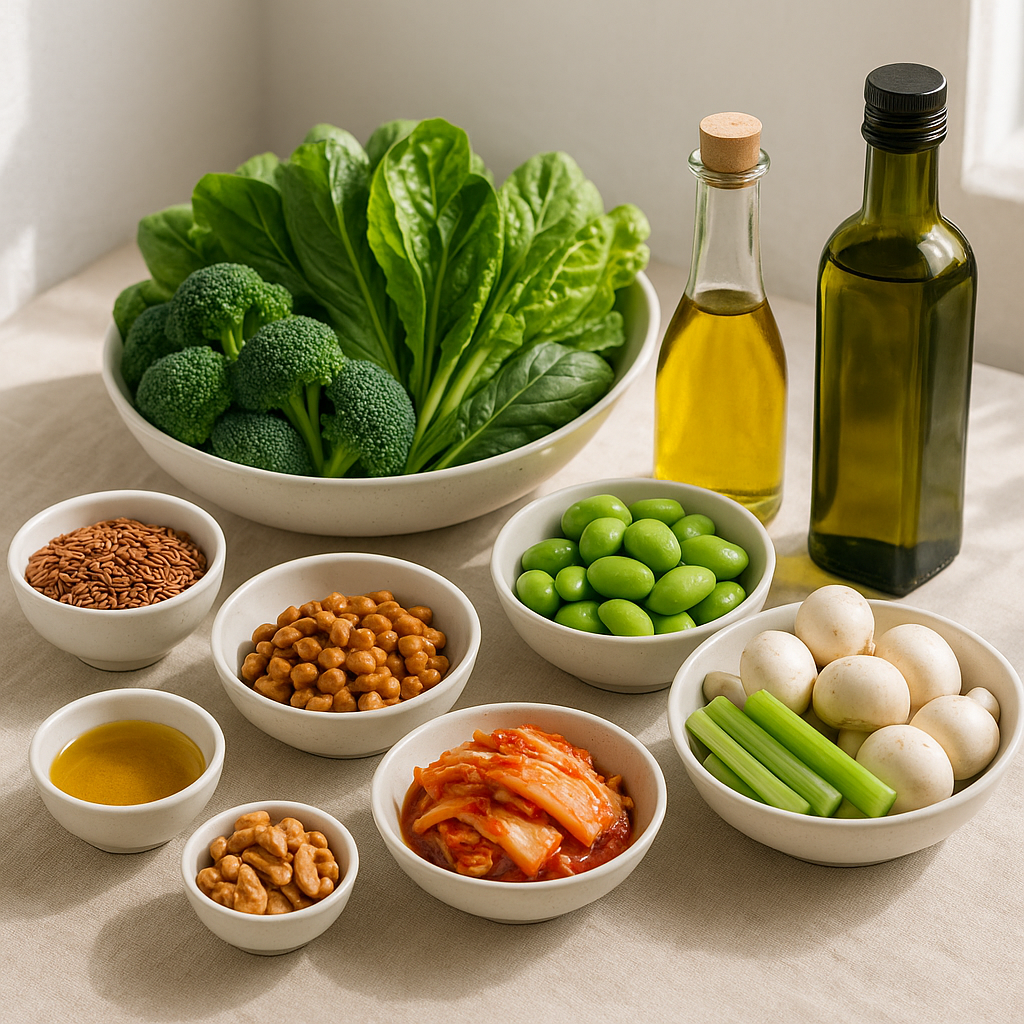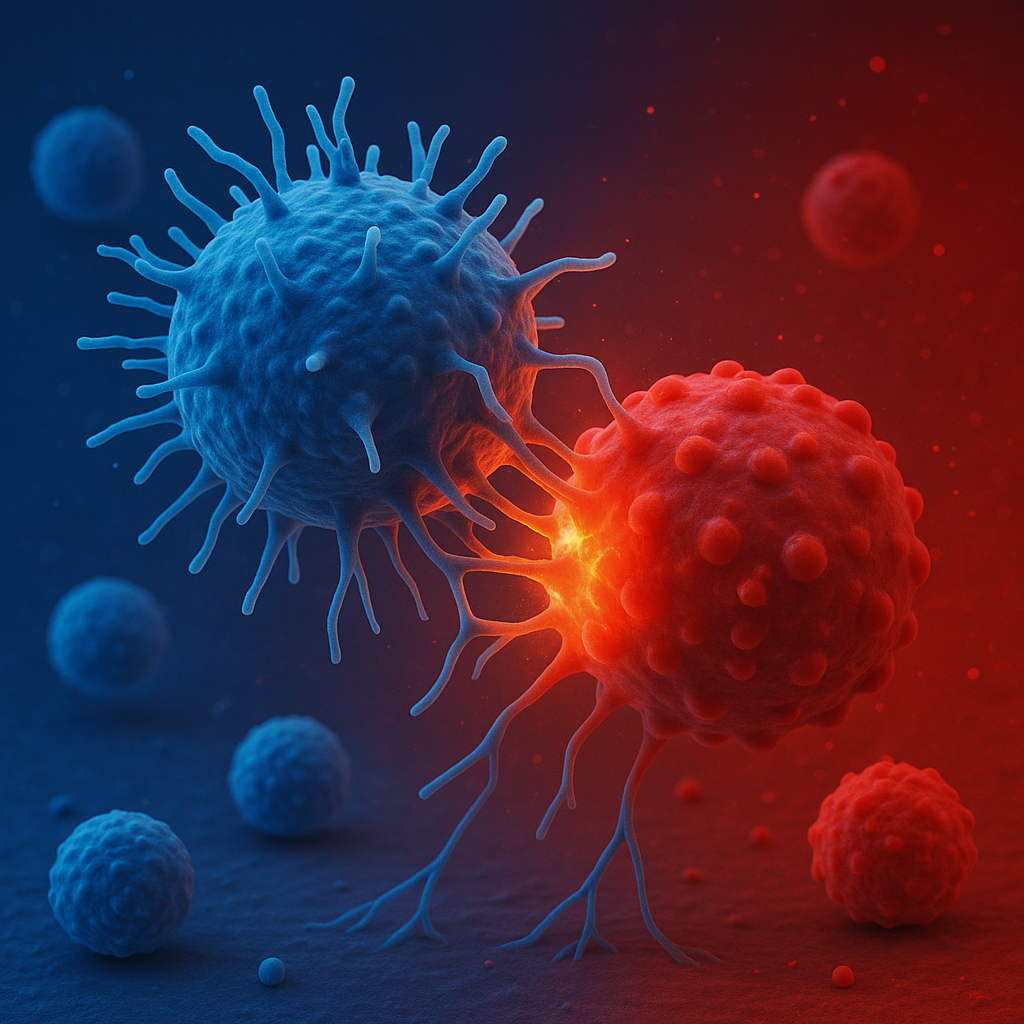Practice healthy eating, regular exercise, and stress management to prevent and manage cancer. Activate NK cells and boost your immune system to stay healthy.
Introduction
In today’s society, cancer is no longer an unfamiliar disease. With the increasing incidence of cancer, many feel anxious. Fortunately, cancer is preventable and can be managed effectively with appropriate care. Overcoming cancer and maintaining a healthy life involves not only medical treatments but also our daily habits and mindset. Let’s explore key strategies for cancer prevention and management as revealed by various studies and expert advice.

The Occurrence, Recurrence, and Post-Treatment Management of Cancer
Cancer doesn’t develop overnight. Normal cells undergo several precancerous stages before becoming cancerous, and early-stage cancers can progress further through mutations. Even after successful treatment, the risk of recurrence always exists. Many patients, after hearing they’re fine post-treatment, return to previous habits like drinking or smoking, leading to recurrence. Alcohol and tobacco are confirmed to promote cancer growth and should be avoided.
During treatment at university hospitals, maintaining strength through proper nutrition is crucial. However, after treatment ends and one returns to daily life, a stricter diet is recommended for long-term survival. Studies suggest that maintaining a rigorous lifestyle for at least 2 to 3 years post-treatment helps the body return to normal and supports long-term survival.
Dietary Habits for Cancer Prevention and Management: What to Avoid and What to Embrace
Foods to Avoid:
- Sugary Foods: Cancer cells thrive on glucose; hence, it’s essential to be cautious with sweet foods.
- High-Sugar Fruits: Modern fruits often have high sugar content; opt for low-sugar fruits like lemons or limes.
- Refined Carbohydrates: White rice, white bread, and flour-based foods quickly break down into sugars and should be limited.
- Processed Foods: Foods with high sugar or artificial additives, like jams and cereals, should be avoided.
- Dairy and Meats: Western dietary staples like milk, cheese, and meats, especially processed meats like sausages, ham, and bacon, are classified as Group 1 carcinogens. Red meats like beef and pork are Group 2A carcinogens; it’s advisable to limit their intake.
- Salty Foods: Excessive salt intake is linked to cancer growth.
- Highly Processed Foods: Foods with numerous chemical additives can burden the liver and kidneys; always check ingredient labels carefully.

Foods to Embrace:
- Vegetables: Increase intake to 400g to 800g daily. Vegetables promote gut health and enhance gut immunity.
- Fermented Foods: Traditional fermented foods like kimchi, doenjang, and cheonggukjang support gut immunity.
- Healthy Oils: Perilla oil and flaxseed are rich in omega-3 fatty acids.
- Legumes: Beans, especially black beans, are excellent protein sources and contain antioxidants.
- Mushrooms: Medicinal mushrooms like shiitake, chaga, and sanghwang mushrooms boost immunity.
- Traditional Foods: Foods that have been consumed historically, like rice and fermented products, are less likely to cause allergic reactions.
- Specific Foods with Research Support:
- Purple Sweet Potatoes: Inhibit colon cancer stem cells and reduce interleukin-6 levels.
- Green Tea: EGCG component induces cancer cell apoptosis and inhibits colon cancer stem cell growth.
- Matcha: Shown to suppress breast cancer cells.
- Extra Virgin Olive Oil: Oleocanthal component promotes cancer cell destruction.
- Walnuts: Delay colon cancer stem cell formation and are rich in omega-3 fatty acids and phenolic compounds.
- Brown Rice, Garlic, Paprika, Sweet Potatoes: Enhance immunity.
- Pork (in moderation): Provides protein, zinc, vitamin B6, and selenium, supporting immune function.
- Red Ginseng/Ginseng: Ginsenosides and polyphenols strengthen immunity

Strengthening Immunity and Lifestyle Habits: The Importance of NK Cells
Immunity is our body’s defense against foreign substances, bacteria, and viruses. When immunity declines, we become more susceptible to these threats, which can be life-threatening. Natural Killer (NK) cells are a part of our innate immunity, identifying and eliminating bacteria, viruses, and cancer cells from birth. NK cell activity peaks in our 20s and gradually decreases with age, dropping to half by our 60s and one-third by our 80s. Reduced NK cell activity means our body can’t effectively eliminate daily-forming cancer cells, increasing cancer risk.

Lifestyle Habits to Boost Immunity:
- Adequate Sleep: Aim for 7–8 hours of quality sleep daily. Sleeping between 10–11 PM and 3 AM is crucial for detoxification and immune recovery. Use dim lighting at night and avoid bright lights during nighttime bathroom visits.
- Regular Exercise: Light exercises or stretching enhance blood circulation and stimulate the immune system. Lower body exercises and walking are particularly beneficial. If sedentary, stand up and move every 30 minutes to promote pelvic blood flow. For cancer prevention, engage in moderate-intensity exercise for at least 30 minutes, five days a week. Aerobic, strength, and flexibility exercises are essential for cancer patients, aiding in fatigue reduction, sleep improvement, psychological stability, immune function enhancement, and physical function improvement.
- Hand Hygiene: Regular handwashing is a fundamental preventive measure against many diseases.
- Balanced Nutrition: Consuming a variety of foods rich in proteins, essential amino acids, and vitamins is vital for maintaining a healthy immune system.

Mental Health Management: The Power of Stress and Positive Thinking
Stress management is crucial as chronic stress can alter blood circulation, leading to cellular mutations and potentially causing cancer. Many cancer patients have experienced significant stress events. Stress triggers the release of hormones like adrenaline and cortisol; elevated cortisol levels reduce lymphocytes, weakening the body’s ability to combat cancer cells. Severe stress can increase the risk of recurrence and mortality in colon cancer patients by up to 2.5 times.
Efforts to reduce stress are essential. Maintaining a positive and grateful mindset significantly boosts immunity. How we interpret stress affects our body’s response; positive interpretations promote the release of beta-endorphins, enhancing mood and immunity. Practices like meditation, yoga, and art therapy are gaining attention as complementary therapies for cancer patients, aiding in psychological stability and recovery. While some hospital programs and government initiatives support these therapies, challenges like system improvements, patient awareness, and insurance coverage remain. Patient determination and infrastructure expansion are necessary.

Conclusion: Small Habits Create Miracles
Preventing and managing cancer doesn’t rely solely on expensive medications or foods. Avoiding smoking and alcohol, adopting healthy eating habits (reducing sugary, processed, and salty foods; increasing intake of vegetables, fermented foods, legumes, mushrooms, and omega-3-rich foods), engaging in regular exercise (like daily 30-minute walks), ensuring adequate sleep, and effectively managing stress are common-sense daily habits that are crucial. These small, consistent efforts strengthen immunity, maintain NK cell activity, and create a body capable of fighting cancer. Regular health check-ups are also vital for early cancer detection. Miracles aren’t distant; they reside in our daily commitment to healthy living. Starting today, let’s make small changes to build a healthier and happier life free from cancer

#cancerprevention #healthyeating #regularexercise #stressmanagement #immuneboosting #NKcells #healthylifestyle

#cancerprevention #healthyeating #regularexercise #stressmanagement #immuneboosting #NKcells #healthylifestyle
